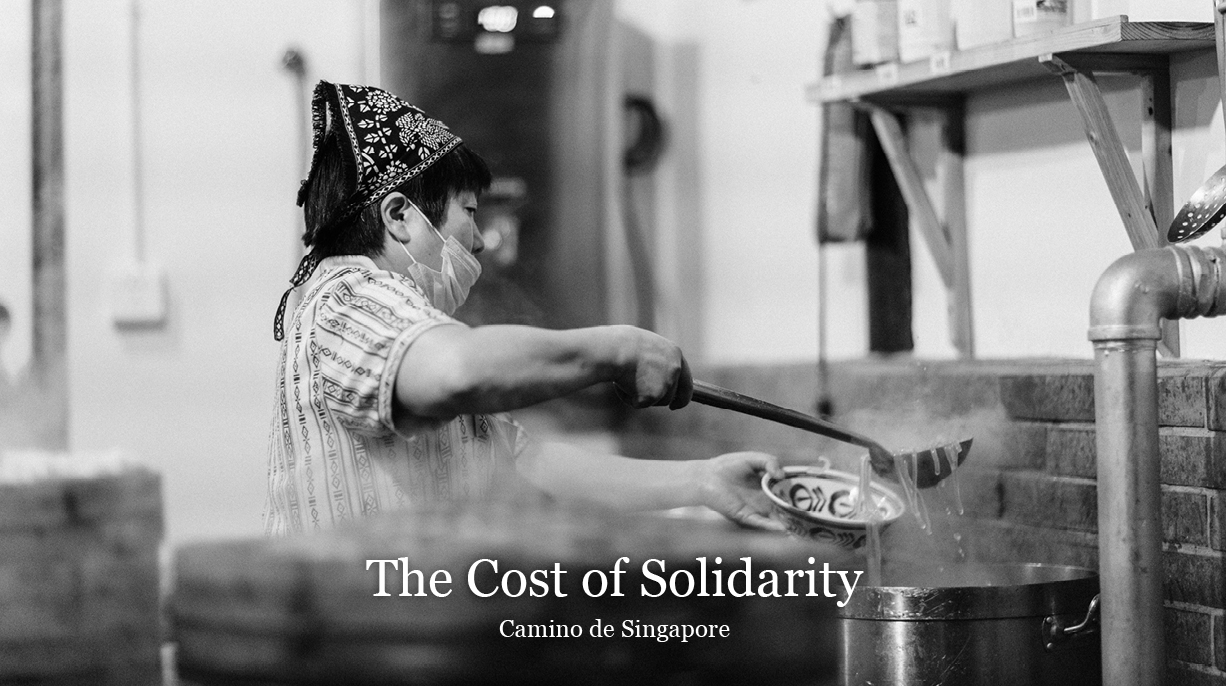No products in the cart.

Photo by http://unsplash.com/@stevelong3
“Cheap grace is the preaching of forgiveness without requiring repentance… grace without discipleship, grace without the cross, grace without Jesus Christ.”
The theologian Dietrich Bonhoeffer famously argued that grace is costly because it cost God the life of his only son. Thus, we cannot expect to receive it for nothing, but we must be ready to pay with all the sincerity we can offer.
I was reminded of Bonhoeffer when I read a recent report in the news, which cited Senior Minister of State Zaqy Mohamad as saying that his committee is exploring ways to help low-wage workers in the food service sector. One approach being considered is the Progressive Wage Model (PWM), something which some have dubbed as “minimum wage plus”.
Mr Zaqy then remarked that lifting wages for low-income workers in this sector could cause rising costs for food businesses and that might mean that consumers need to pay more when eating out. For now, PWM has been implemented in the cleaning, security and landscape sectors. Plans are being made for the lift maintenance and waste management sectors as well. All these are meant as follow-ups to the government’s plan to accelerate pay increases for low-income workers.
Now, Singapore is known to be a cheap food paradise. Our hawker centres, for example, provide very good food at very low cost. This is unlike most countries with similar economic development level where fast food with poor nutritional content is the cheapest food that can be found outside. Unfortunately, this also means that, in many cases, workers are not earning enough and young people are not interested in joining Singapore’s food service sector, resulting in high demand for migrant workers and threatening the continuation of food businesses.
All these could change if the PWM is implemented. While the extent of change depends on the final shape of the policy, what is certain is that most of us who eat out often will feel the increase of food cost. We might need to eat out less, cook at home a little more often, and budget more carefully when and where we can eat.
In his encyclical “Sollicitudo Rei Socialis”, Pope St John Paul II said, “[Solidarity] is not a feeling of vague compassion or shallow distress at the misfortunes of so many people…it is a firm and persevering determination to commit oneself to the…good of all.” Thus, to be in solidarity with those who suffer is costly, because it requires of us determination and perseverance. Applying this idea to this context, many of us might eventually be forced to ask ourselves whether rising costs will reduce our willingness to support pay increase for low-wage workers. This is a very difficult question for most of us, including myself. Nevertheless, we must ask. Will we say we are willing to pay the cost of solidarity?
Erwin Susanto is part of the Advocacy and Research team at Caritas Singapore. He enjoys boring his friends with his interest in Old Testament/Hebrew Bible studies and finds it hard to resist commentating on all kinds of contemporary issues.
